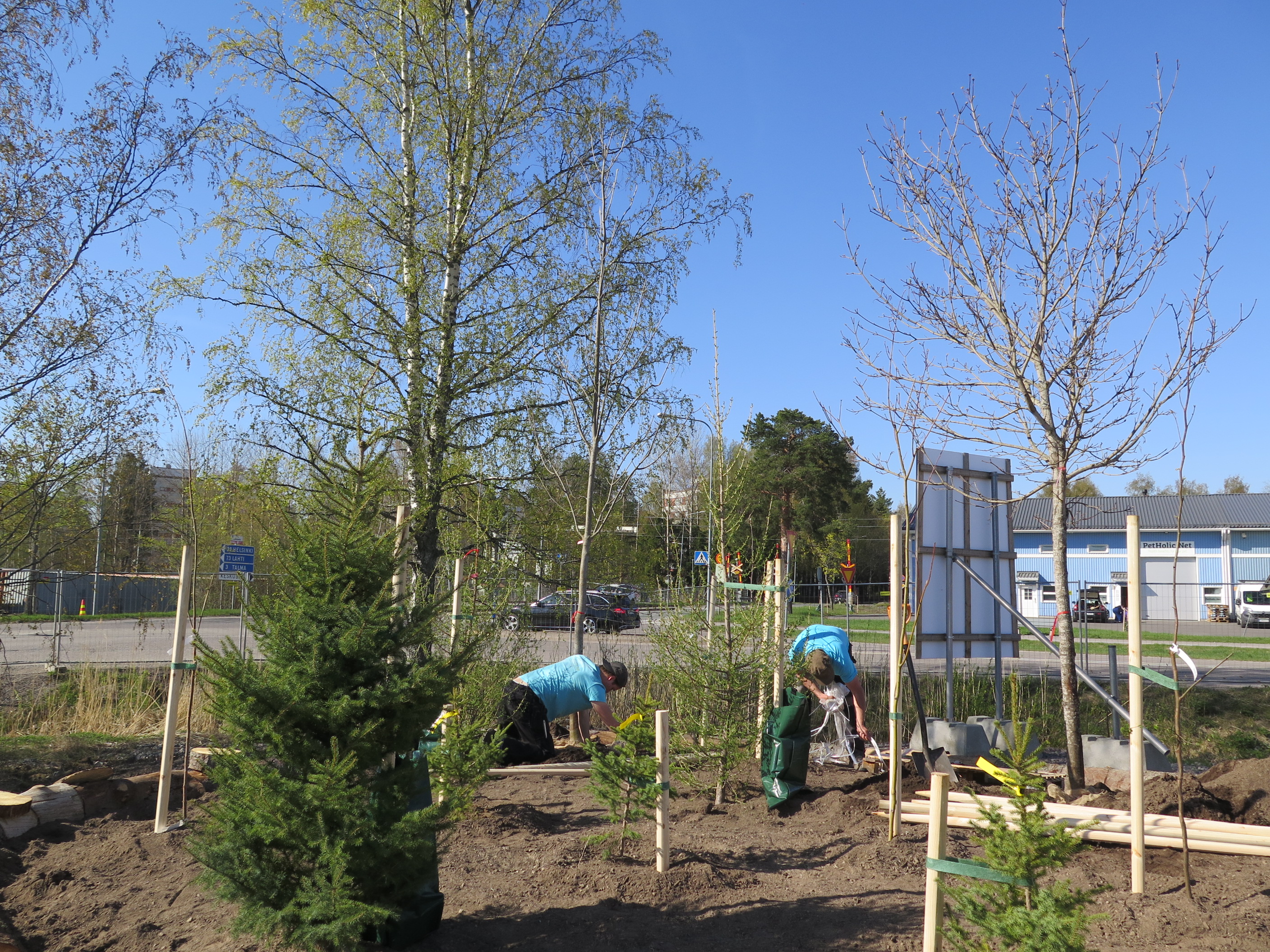Conclusions
Municipalities can act to strengthen sinks and this activity should be considered an important contribution to the general societal transition toward national carbon neutrality.
The challenges that were identified in our Nordic surveys and in the workshops show that it is not effective for municipalities to focus on their own climate neutrality with an aim to verify it according to, for example, gold standards.
Municipalities have only partial control over the sinks within their own territories. Even a municipality that has large, forested areas within its border, has limited rights to steer the use of land, for example, through land use planning. Forest harvests that can significantly affect the sinks are not controlled by municipalities. The same is true for, for example, the management of agricultural soils or coastal waters.

Planting microforest for studying possibilities to strengthen local carbon sinks in the CO-CARBON project (https://cocarbon.fi/en/) funded by the Finnish Strategic Research Council. Photograph: Anna Pursiainen
Ultimately, the development of sinks and emissions from land use depends strongly on the landowners who have sovereign rights to use their land within the boundaries that land use planning and other regulations allow. Carbon sinks and emissions from land use have until recently not been issues in land use policy and therefore there are limited or no policy instruments that would guide landowners to safeguard carbon sinks and reduce emissions from land use. There are also few policy instruments that would give landowners a possibility to benefit financially from the strengthening of sinks.
Many municipalities experience a lack of expertise and financing in dealing with sinks. This calls for some centrally organised support. Such support can be in the form of openly available data on the level of sinks and support on the interpretation of such information. National information on sinks should in the future therefore be produced at a resolution that gives municipalities information on the state of the sinks within their territories. Currently information on sinks is routinely available for larger areas only. Further development could also include guidance on voluntary carbon (sink) markets.
Despite the barriers and limitations in the work on carbon sinks, municipalities have significant potential and are also interested in enhancing and developing actions that incentivize the safeguarding of sinks within their territories. Finer resolution of the information on sinks would encourage joint work across municipalities and cooperation between municipalities, landowners, and other stakeholders.